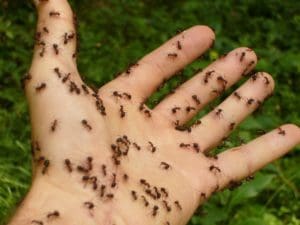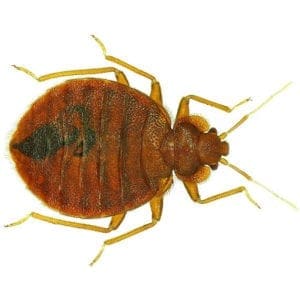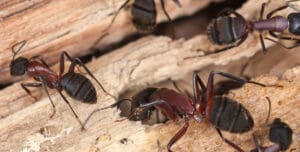
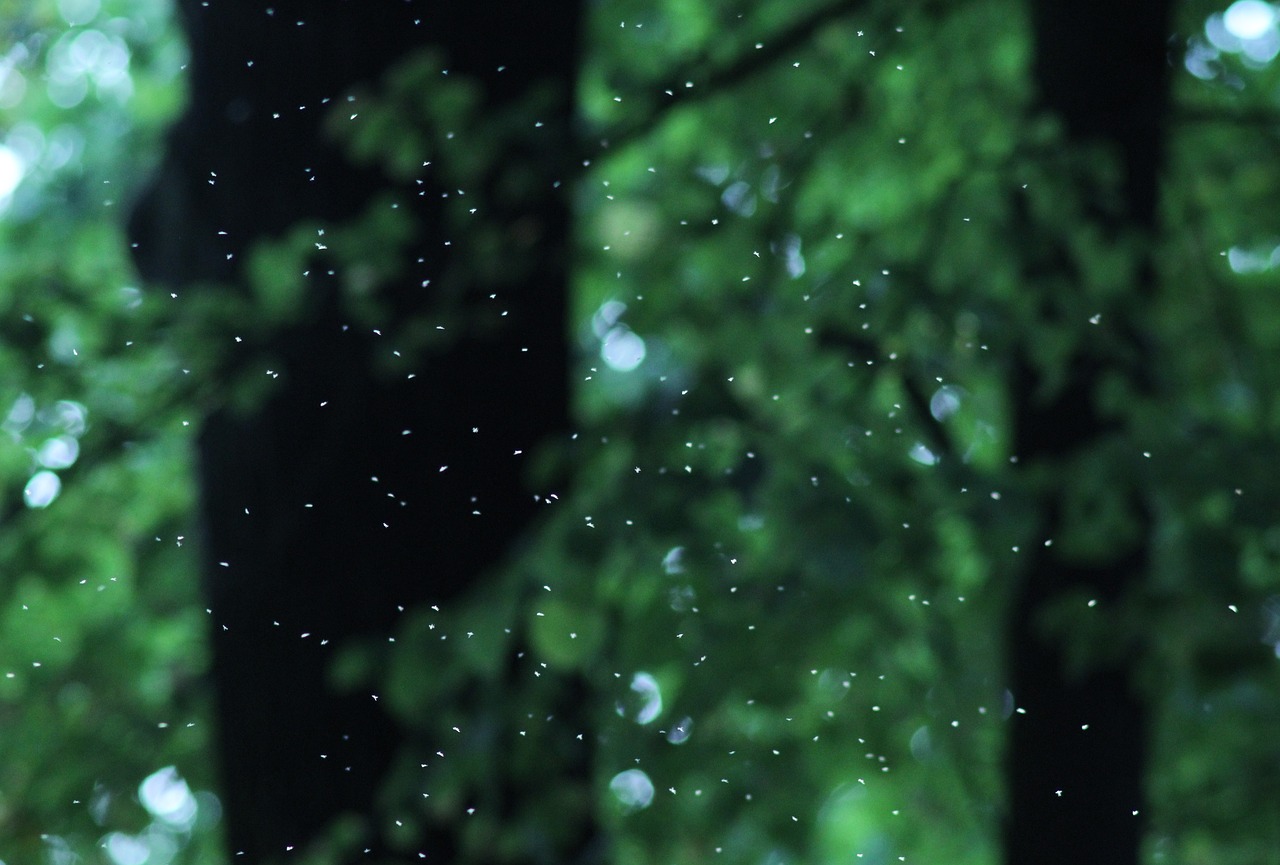
Natural Ways to Remove Mosquitoes: Effective Strategies to Keep Them Away
When it comes to keeping your home and yard mosquito-free, understanding the facts about mosquitoes is essential. This article explores natural ways to remove mosquitoes, providing effective methods to reduce their populations. By implementing these natural solutions, you can enjoy your outdoor spaces without the nuisance and health risks these pests bring.
Mosquitoes and Their Habitats
Mosquitoes are small, flying insects known for their ability to bite and feed on the blood of humans and animals. Mosquito season in New Jersey typically runs from late spring through early fall, peaking in the warm, humid months of June through September. These pests thrive in warm, humid environments, typically near stagnant water sources such as ponds, marshes, and containers where rainwater collects. Water is essential for their life cycle, as female mosquitoes lay their eggs in or near water. Mosquitoes are particularly drawn to areas with dense vegetation, which provides shade and protection from wind. Additionally, regions with poor drainage or frequent rainfall become prime breeding grounds, as they offer ample opportunities for egg-laying. The presence of humans or animals also makes these areas more attractive to mosquitoes, as they are drawn by carbon dioxide, body heat, and certain body odors. Consequently, densely populated and humid areas with standing water and vegetation are particularly vulnerable to mosquito infestations.
Who Are Mosquitoes Attracted To?
Certain factors make some people more attractive to mosquitoes than others. One significant factor is body temperature; individuals with higher body temperatures naturally emit more heat, which mosquitoes can detect. Additionally, mosquitoes are highly sensitive to carbon dioxide emissions, which humans release when they exhale. People who exhale more frequently or in greater volume, such as those who are physically active or larger, tend to attract more mosquitoes. Specific body odors also play a crucial role. The composition of sweat, which includes lactic acid, ammonia, and other compounds, can vary from person to person, making some individuals more appealing to mosquitoes. Moreover, certain bacteria on the skin can produce scents that are particularly attractive to these insects. Blood type may also influence attraction, with some studies suggesting that people with Type O blood may be more prone to mosquito bites.
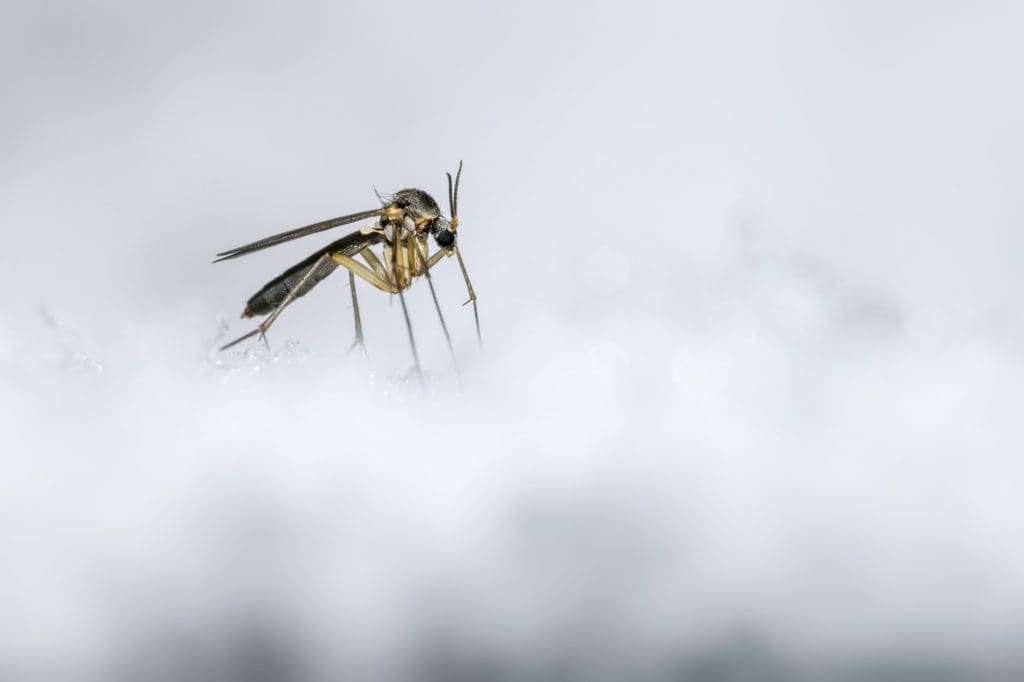
Strategies to Prevent Mosquitoes
To prevent mosquitoes from entering your living spaces, it’s essential to maintain a barrier between them and your home. Ensure that all windows and doors are fitted with tight screens, and repair any holes or gaps that could allow mosquitoes to enter. Inside, using mosquito repellents, such as sprays or electric diffusers, can help keep these pests at bay. Additionally, using outdoor insect repellents and installing mosquito traps or zappers in your yard can help bolster mosquito pest control, making your outdoor spaces more comfortable. Read on to learn about all-natural ways to deter mosquitoes.
Natural Ways to Get Rid of Mosquitoes
Natural methods can effectively reduce mosquito presence without relying on chemicals.
Citronella Candles
Burning citronella candles outdoors creates a barrier of scent that repels mosquitoes. The natural oils in citronella mask the smells that attract mosquitoes, keeping them at bay.
Lemon Eucalyptus Oil
Applying lemon eucalyptus oil to your skin or clothing acts as a natural repellent. Its strong smell confuses mosquitoes, making it harder for them to locate you.
Neem Oil
Neem oil can be applied to the skin or burned in lamps to repel mosquitoes. It contains compounds that are toxic to mosquitoes, disrupting their life cycle and preventing them from biting.
Cinnamon Oil
Cinnamon oil can be diluted and sprayed around your environment. It not only repels mosquitoes but also kills mosquito larvae, reducing their population.
Lavender Oil
Lavender oil has a pleasant scent for humans but is repellent to mosquitoes. Applying it to your skin or using it in diffusers helps keep mosquitoes away.
Thyme Oil
Thyme oil, when mixed with a carrier oil and applied to the skin, offers protection against mosquitoes. It contains compounds that are particularly effective in repelling them.
Use Fans
Fans can disrupt mosquito flight, making it difficult for them to land and bite. The airflow scatters their approach, reducing their presence.
Wear Long, Thick Clothing
Wearing long sleeves and pants made from thick fabric creates a physical barrier that mosquitoes can't easily penetrate, reducing the risk of bites.
Landscape with Mosquito-Repelling Plants:
Plants like marigolds, basil, and catnip release scents that repel mosquitoes. Having these plants in your garden or around your home can naturally deter them.
Avoid Sweet and Fruity Fragrances
Mosquitoes are attracted to sweet and fruity scents. Avoiding perfumes, lotions, or body washes with these fragrances can reduce your attractiveness to them.

Animals That Eat Mosquitoes
Natural predators of mosquitoes, such as bats, birds, and dragonflies, play a crucial role in controlling mosquito populations. Bats are particularly effective, as a single bat can consume thousands of mosquitoes in one night. They hunt these insects during their nocturnal activities, helping to reduce mosquito numbers significantly. Birds, especially species like swallows, purple martins, and waterfowl, also contribute to mosquito control. These birds feed on mosquitoes during the day, particularly in areas near water where mosquitoes are abundant. Dragonflies, often referred to as “mosquito hawks,” are another natural predator, both in their adult form and as larvae. Dragonfly larvae thrive in water, preying on mosquito larvae, while adults catch mosquitoes mid-flight. Encouraging the presence of these natural predators through habitat conservation, such as maintaining wetlands, planting native vegetation, and installing bat houses, can help manage and reduce mosquito populations naturally.
Reducing Mosquito Breeding Sites
Reducing mosquito breeding sites is crucial for controlling their populations, and this starts with eliminating standing water. Mosquitoes lay their eggs in stagnant water, so it's important to regularly empty and clean items like birdbaths, plant saucers, and pet water bowls. Even small amounts of water in discarded containers, tires, or clogged drains can become breeding grounds. Cleaning gutters is also essential, as debris can trap water, creating ideal conditions for mosquito larvae. Ensuring proper drainage around your home helps prevent water from accumulating in low-lying areas. This can involve grading the landscape to direct water away from the house, filling in any depressions in the yard, and maintaining drainage systems to ensure water flows freely.
Discover natural ways to remove mosquitoes and get expert residential pest control. Contact us for effective pest solutions today!
By incorporating these natural ways to remove mosquitoes, you can significantly reduce mosquito populations and enjoy a more comfortable, pest-free environment. However, for comprehensive residential pest control and effective yard pest control, professional assistance may be necessary. Twin-Boro’s experts are equipped to address your specific needs with targeted solutions. For more information or to schedule a consultation, don't hesitate to contact us. Let us help you reclaim your home and yard from unwanted pests.




